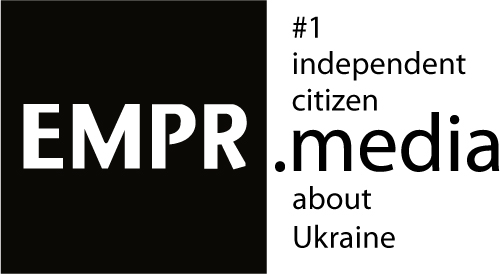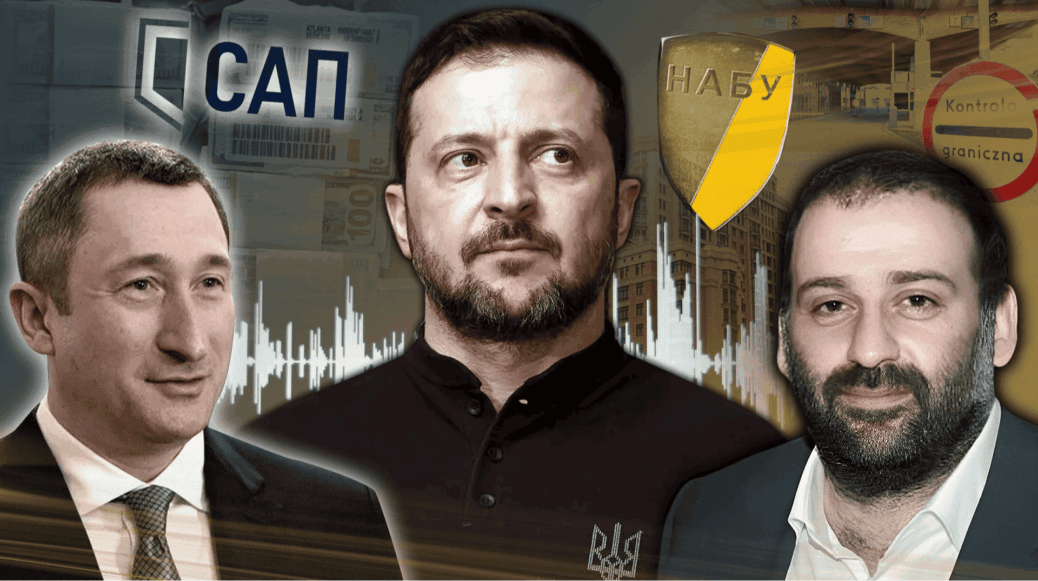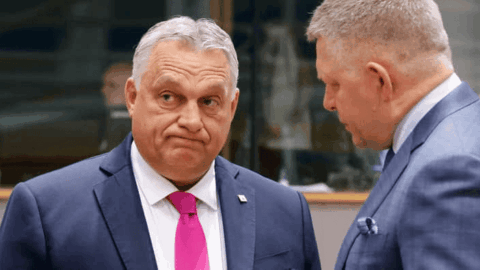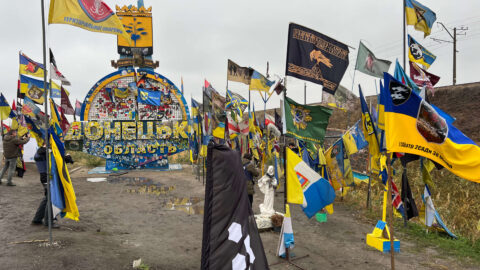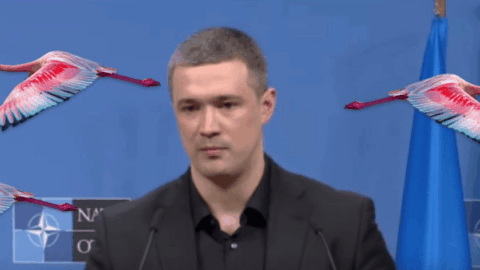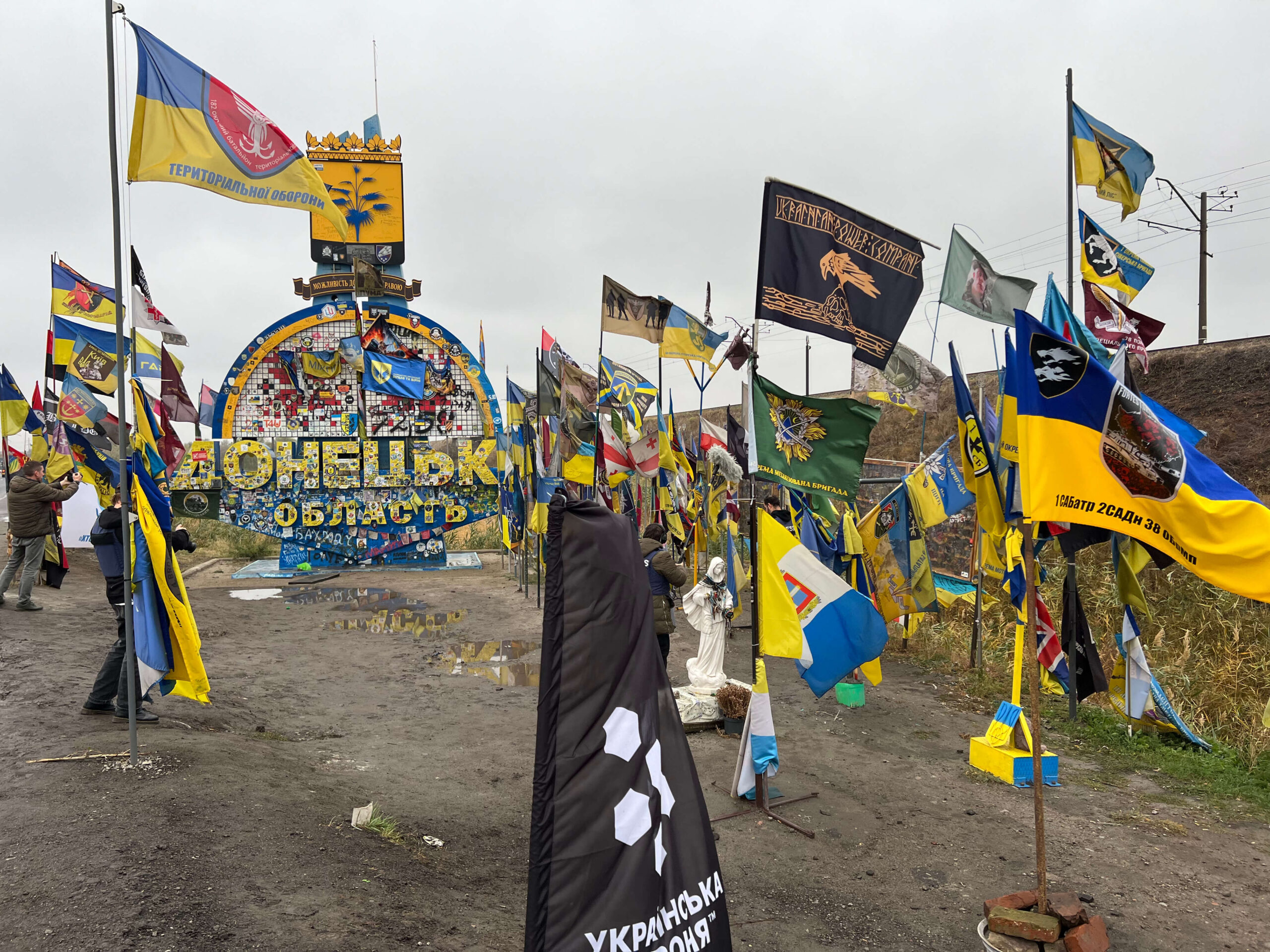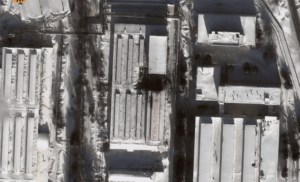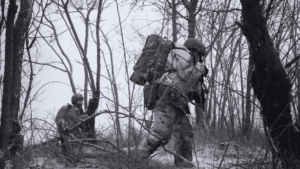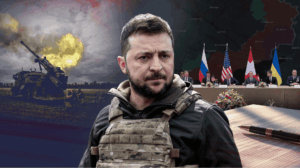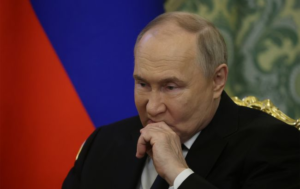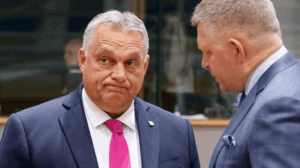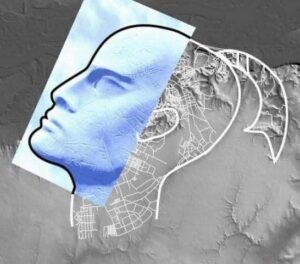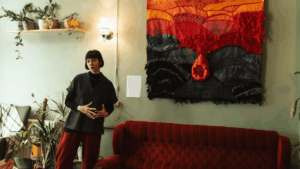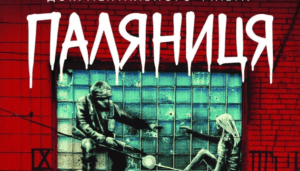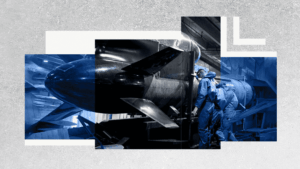NABU and SAPO raided Timur Mindich’s Kyiv apartments, uncovering surveillance devices and links to corruption. Close presidential ties shielded Chernyshov, while embezzlement schemes and offshore funds continue.
Every new Ukrainian government follows a not-too-long but conspicuous path that, within five years, ends up turning reformers, fighters against corruption and opponents of everything bad into something resembling a criminal gang.
Ukrainska Pravda investigates.
A grouping with its own armed wing, cashiers, “overseers” and bundles of dollar cash.
Reform the courts or use them as the older brother in schoolyard brawls with opponents, dismantle corrupt schemes or lead them, sell state enterprises to private hands or keep parasitising on them? This marathon — unquestionably difficult when independent institutions are absent — always has a different starting point and, oddly, the same finish line.
But there are formulas written by Ukrainian history that have long since become laws.
For example, if you take power and multiply it by friends, you almost always get corruption.
Because friends don’t spend decades working their way up to positions, don’t feel responsibility, know they won’t lose favour if they make mistakes, and won’t go to jail if they steal. The only thing they need to gain influence is to have gone to school with you, studied at the same university, served in the army, baptized a child together, or been close family friends.
Yushchenko’s “dear friends,” Yanukovych’s “family,” Poroshenko’s business partners.
For instance, under the fifth president there was no political monopoly anymore — but the National Anti-Corruption Bureau of Ukraine (NABU) and the Specialized Anti-Corruption Prosecutor’s Office (SAPO) already existed.
Different groups competed for influence and control over various spheres. Of course, making money still mattered greatly in that reality. However, thanks to the constant struggle, the water “didn’t stagnate” — even in the aquarium of the head of the Specialized Anti-Corruption Prosecutor’s Office.
But if you multiply unlimited power by friends, the only thing you can expect is unlimited corruption. Add the permanence of power to this — and welcome to 2025.
How did President Zelenskyy, in the second half of his seventh year in office, end up in the same political trap as nearly all his predecessors?
And why does the President’s Office see the fight against corruption as a fight against the Office itself?
“Ukrainska Pravda” tried to figure out what has been happening between the President’s Office and the anti-corruption bodies in recent weeks.
Apparently, the president has almost no chance left of jailing his three friends (as Lee Kuan Yew advised) and of achieving even some success in governing the country.
Although one can always try again to destroy NABU and SAPO — which, from the moment of the first attack in July of this year, the President’s Office and its satellites have not left alone for a single week.
Mindich in the room
On Monday, November 10, at 6:30 a.m., two minibuses and an SUV stopped near the notorious “monster building” on 9a Hrushevskoho Street. A crowd of NABU officers entered the building, where on the 15th and 18th floors are the apartments of President Zelensky’s friend and co-owner of Studio Kvartal 95, Timur Mindich. A little later, two special forces officers had to go back down to fetch a hefty tool for breaking down doors from the trunk — and then returned inside the building.
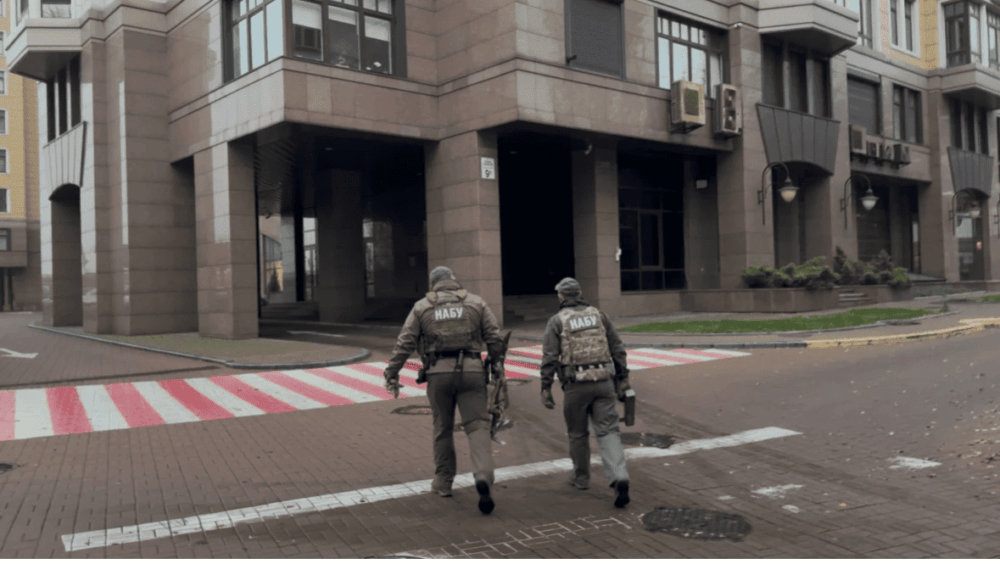
No. They didn’t have to break down the door to Mindich’s apartment — it was wide open. Whether to preserve the locks or as a gesture of mockery toward the raids is unclear. The raids, for which the main figure of recent months was so prepared, found him not only absent from his home in central Kyiv but missing from the country entirely.
The problems arose with the doors on the floor.
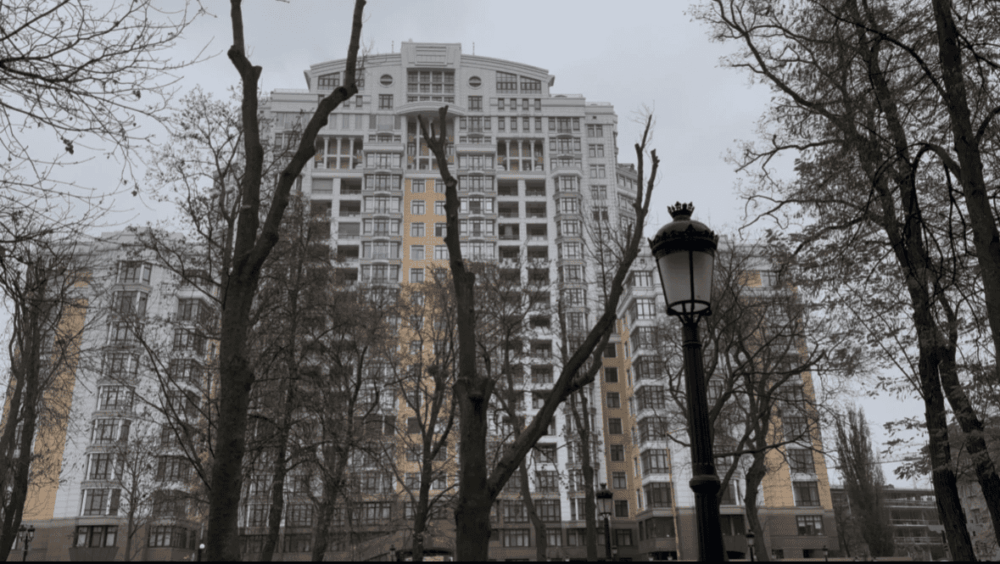
Since Mindich had several apartments in the building on Hrushevskoho Street, the searches of the premises lasted almost 12 hours, from 6 a.m. until 5 p.m.
The apartment where President Zelenskyy celebrated his birthday back in 2021 is located on the 18th floor.
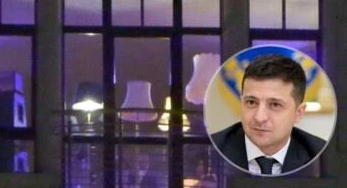
In July of this year, “Ukrainska Pravda” reported that it was in this four-room apartment, measuring 303 square meters, that listening devices were found. Mindich used this apartment as an office for meetings and handling business matters — probably why the surveillance equipment was installed there.
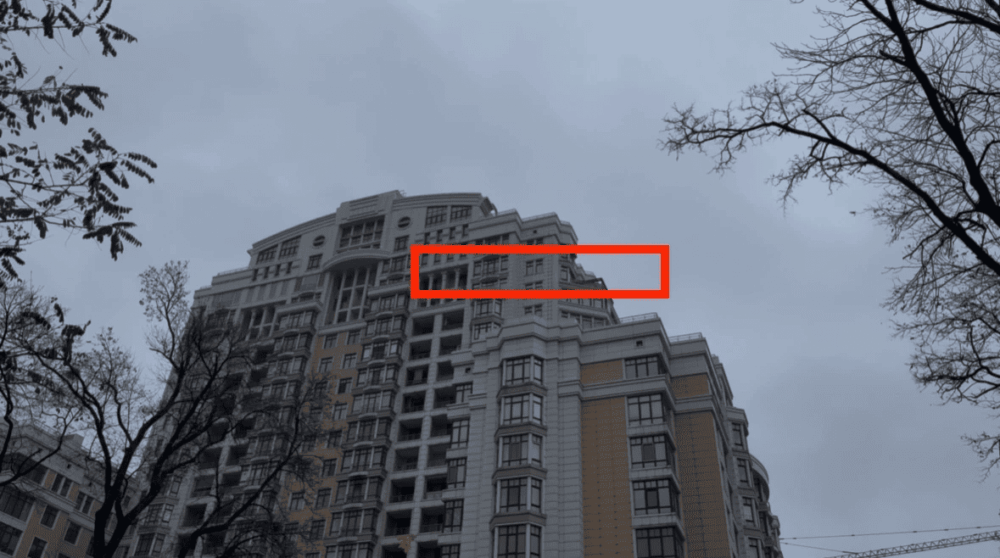
Mindich used another apartment on the 15th floor for living. It is in this apartment that the well-known “golden bathroom,” familiar to Ukrainians, is located — a photo of which was recently published by Member of Parliament Yaroslav Zheleznyak.

According to sources in law enforcement cited by Ukrainska Pravda, Mindich also used two more apartments on the 4th floor, where investigative actions also took place. However, at the time of the searches, the businessman was already in Poland, according to the sources.
Timur Mindich crossed the border at the Hrushiv checkpoint heading to Poland at 2:09 a.m. — four and a half hours before the searches.
During the searches of other figures, sources told Ukrainska Pravda that evidence was found suggesting that the key players had already known on Friday that some actions were being planned for Monday: “We need to clear out by Monday,” one participant in the scheme wrote to another.
Also on Friday, rulings related to investigative actions in Operation “Midas” began being uploaded to the court registry. In theory, the figures involved could have accessed this information as well, using law enforcement officials under their control.
By coincidence, it was that same Friday when a video statement from the head of the President’s Office, Andriy Yermak, suddenly appeared, in which he reported that the National Police had detained a fraudster who allegedly, on behalf of Yermak’s relative, demanded an unlawful bribe for a position in the President’s Office.
Sources in political circles told Ukrainska Pravda that this publication almost coincided in time with the President’s Office receiving information that NABU and SAPO were preparing actions, including against Yermak.
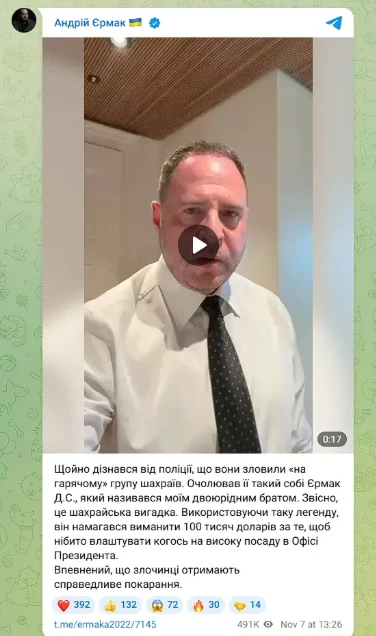
According to law enforcement sources cited by Ukrainska Pravda, one of the suspects in the case returned on Saturday from a two-week vacation in the Maldives — at a time when the country was already under rolling blackout schedules.
It concerns the same figure who once complained: “Carrying $1.6 million — not exactly a pleasure.” Sources emphasize that this is the chief accountant of the criminal organization, known by the call sign “Rioshyk” — Ihor Fursenko. But either he wasn’t warned in time, or they simply didn’t consider him worth saving.
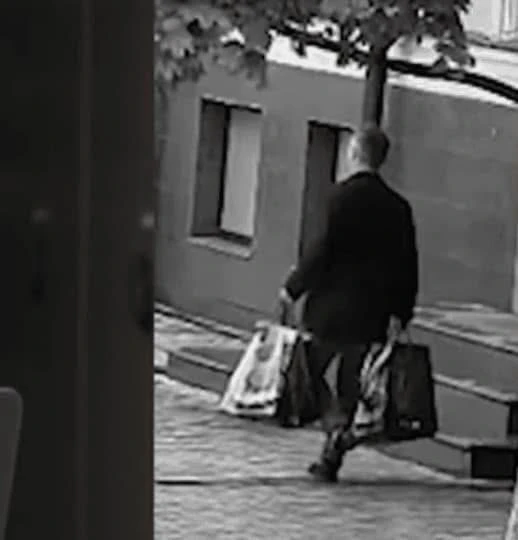
Sources in law enforcement claim that, as of now, NABU and SAPO have information suggesting that part of the case details may have been leaked to the suspects by Andriy Syniuk, the deputy head of SAPO. However, at that time, Mindich’s name was not yet included in the electronic case files.
Following this leak, Mindich’s chief financier, Oleksandr Tsukerman — nicknamed “Sugarman” — fled abroad.
On October 29, Tsukerman and Mindich flew to Israel to attend a friend’s celebration.
On November 4, Mindich returned to Ukraine, while Tsukerman remained in Israel.
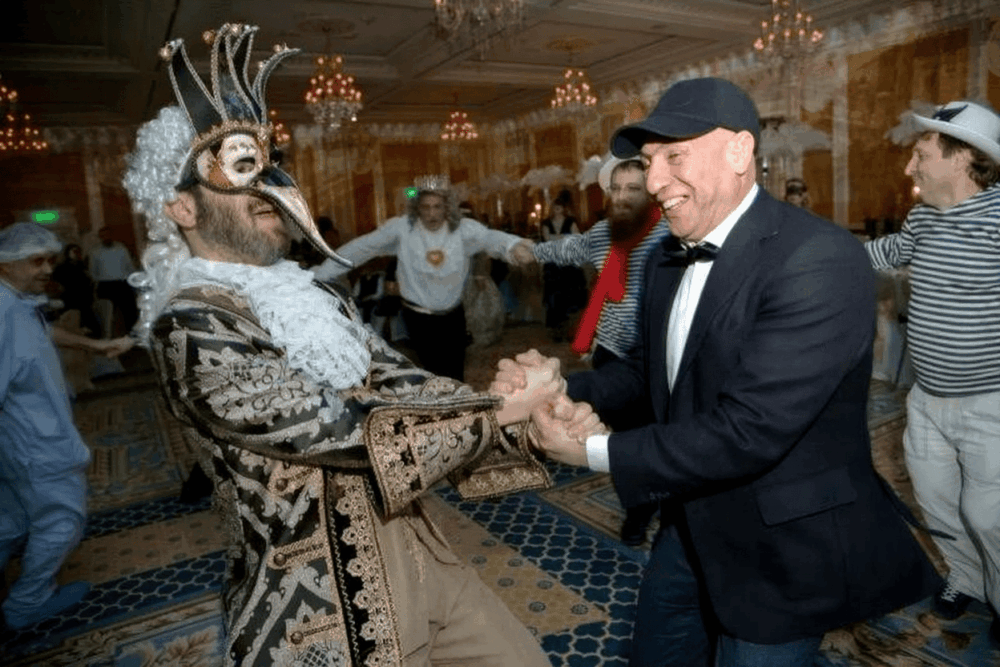
The cynicism of the situation lies in the fact that after that leak in mid-October, media reports emerged claiming that SAPO head Oleksandr Klymenko could soon face charges from the Security Service of Ukraine (SBU), following testimony by Member of Parliament Fedir Khrystenko — which would mean his suspension from office.
Almost immediately, the Office of the Prosecutor General — controlled by Bankova Street — released a statement saying that, should Klymenko be suspended, his duties would be performed by his deputy. And that deputy is none other than Andriy Syniuk.
However, according to law enforcement sources, the Office of the Prosecutor General and the SBU have recently started treating Klymenko’s potential charge like a game of hot potato — passing responsibility back and forth for why it still hasn’t been filed.
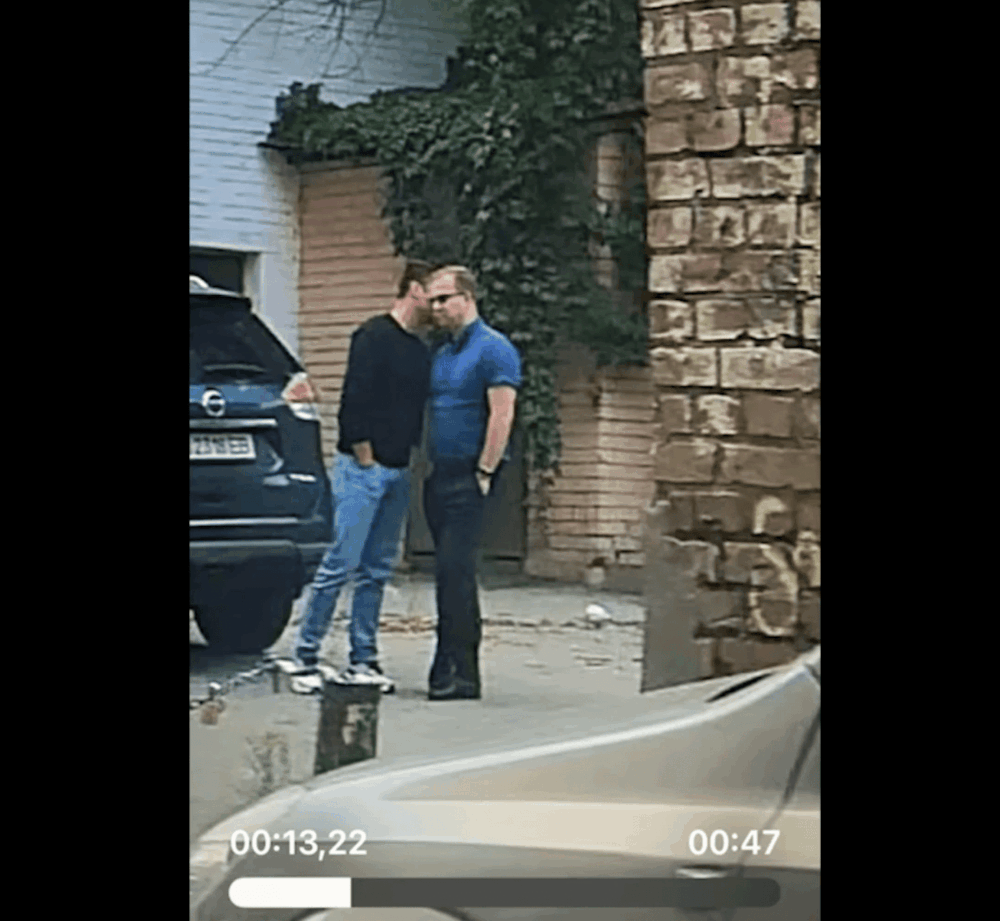
One of those who may have received a warning was Justice Minister and former Energy Minister Herman Halushchenko. In the second half of October, the minister suddenly moved out of the mansion of fugitive ex-minister Zakharchenko in Tsarske Selo, central Kyiv — a property managed by ARMA. However, on the night before the searches, he unexpectedly decided to spend the night in that very house.
Current Energy Minister Svitlana Hrynchuk also arrived there but, mysteriously, managed to leave the mansion just a few minutes before law enforcement officers arrived in the morning.
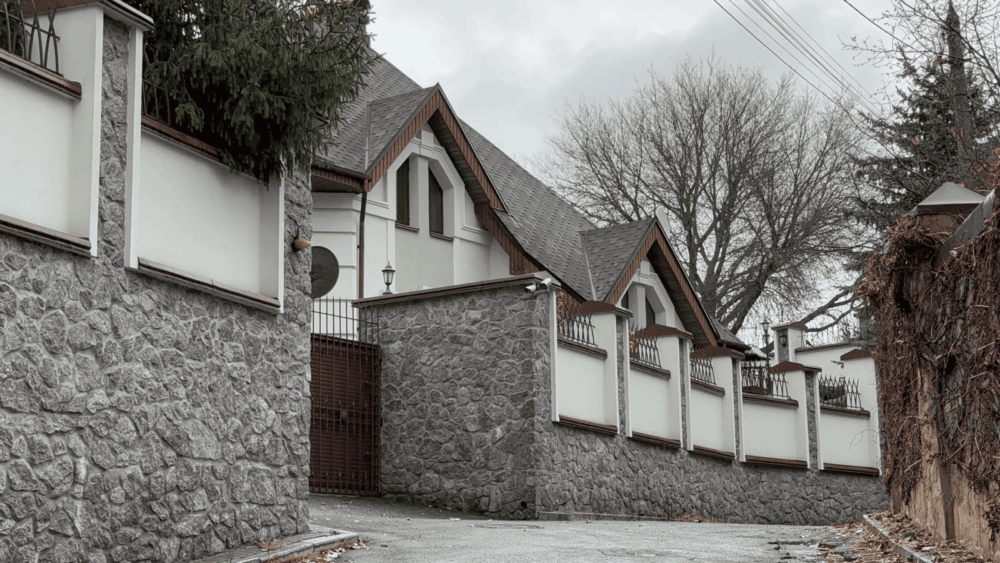
Law enforcement officers controlled by the President’s Office may have monitored NABU employees to obtain information about potential risks in cases involving people from the president’s inner circle.
This is evidenced by the fact that, in a safe house belonging to one of the suspects in the Energoatom embezzlement case, investigators found information about NABU Director Semen Kryvonos and other employees — including the head of the detectives’ unit, Oleksandr Abakumov, who led Operation “Midas.”
Without assistance from law enforcement agencies, the suspects could not have accessed information about NABU officers’ movements from official databases.
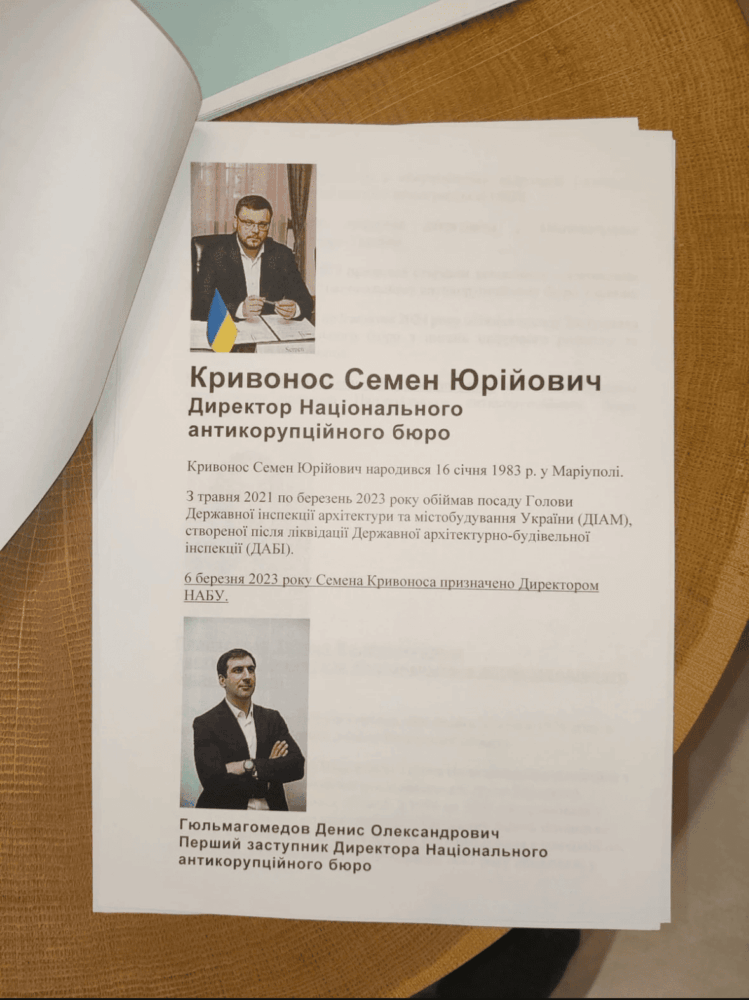
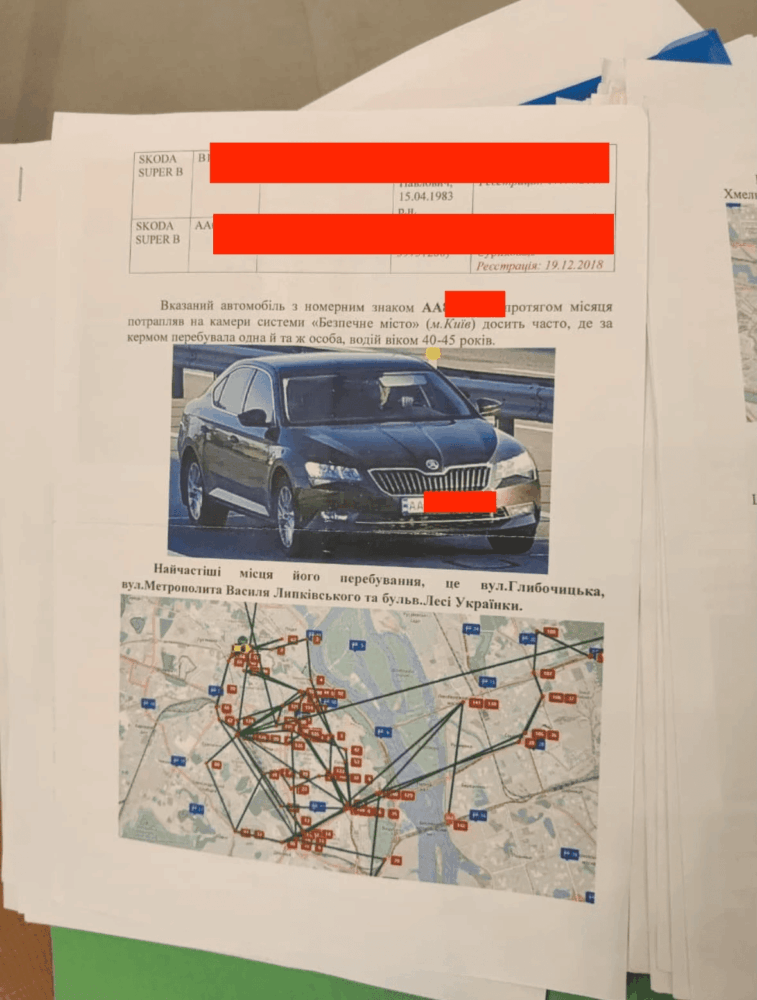
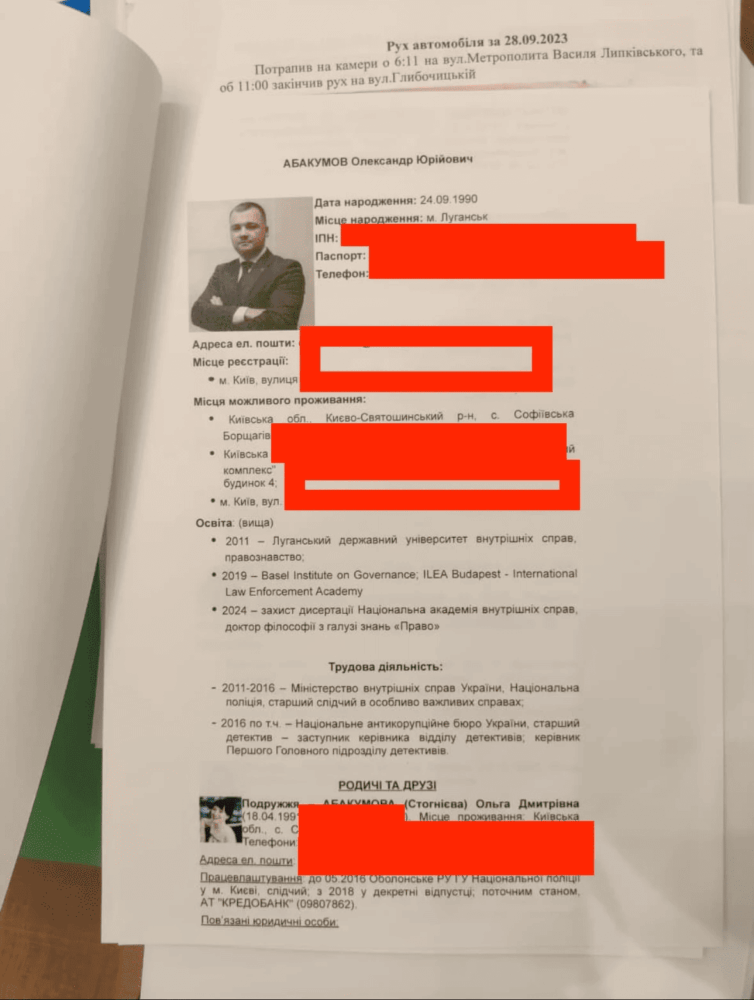
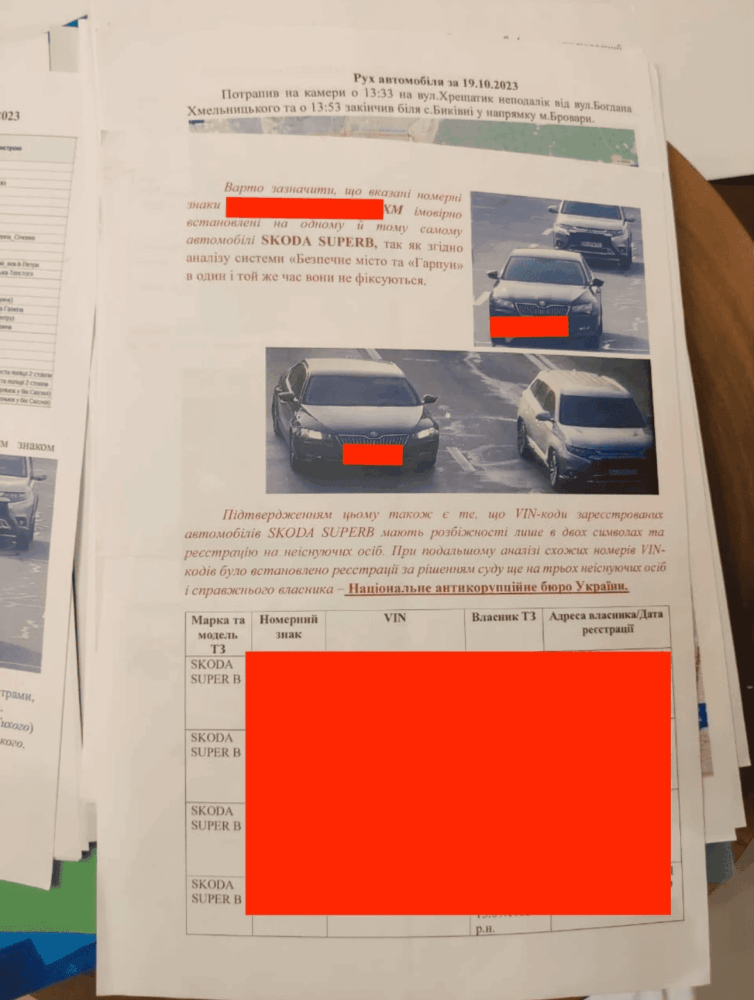
According to sources within the anti-corruption system cited by Ukrainska Pravda, immediately after the searches at Mindich’s properties, NABU and SAPO began receiving threats that there would be “a response.”
Since July of this year, according to UP, the President’s Office has been pretending that “Mindich doesn’t exist.” Yet not only did he continue to exist within the system, but — as the published investigation materials show — he may have remained actively involved in looting the state and beyond.
“Dynasty”
In the third part of Operation “Midas,” released by NABU and SAPO, “Carlson,” a codename for Timur Mindich, discusses freezing a certain construction project and the involvement of “Che Guevara” — former Deputy Prime Minister Oleksiy Chernyshov.
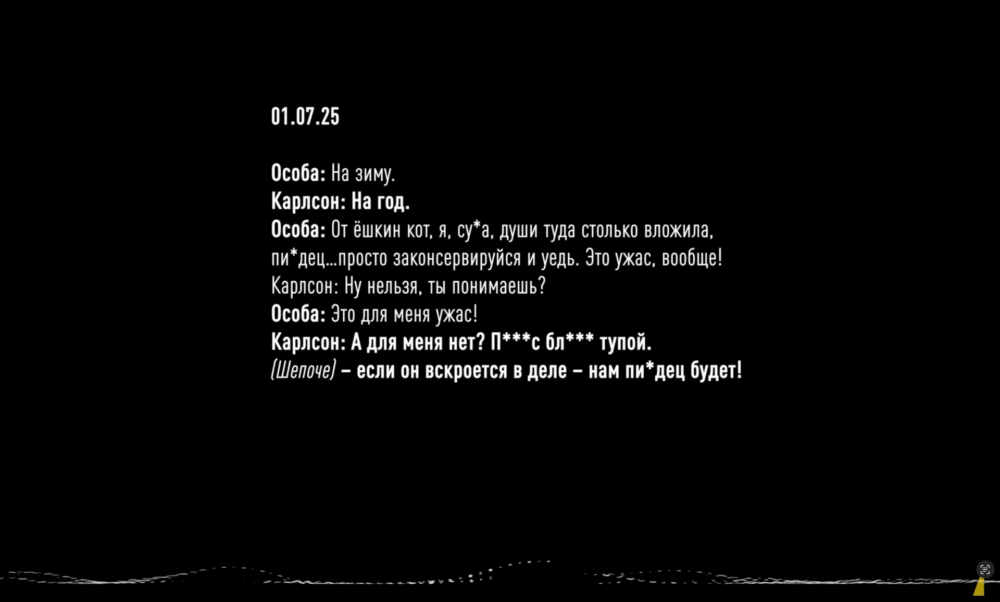
This discussion coincides with the publication by colleagues from Bihus, reporting on four mansions that, during the full-scale invasion, were built by people connected to Chernyshov.
“If he gets exposed in the case — we’re f*cked!” Mindich tells the person overseeing the construction.
In Chernyshov’s case, he was exposed. On October 23, in the “Dynasty” report, Ukrainska Pravda reported that NABU and SAPO are investigating the construction of the four mansions, have conducted roughly 20 searches, and have evidence showing that Chernyshov was the one who built them.
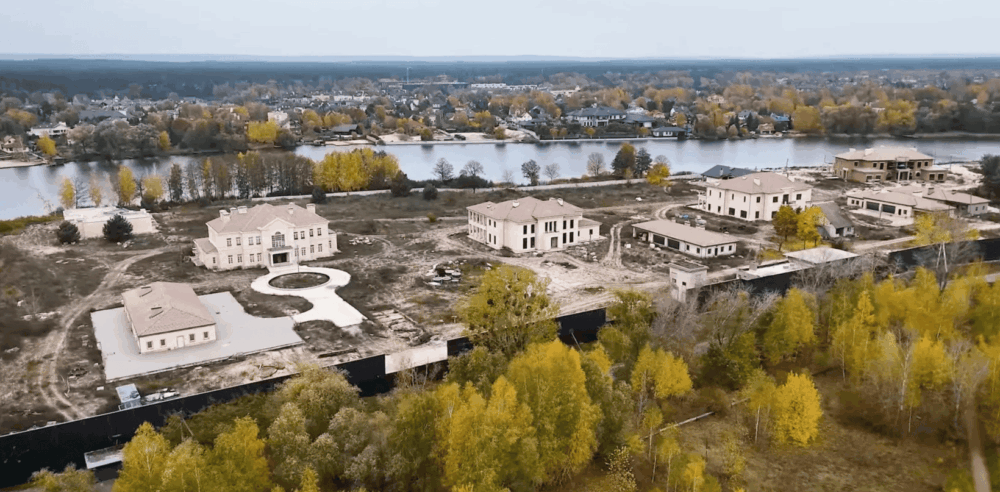
Chernyshov’s wife tried to hide materials related to the construction at her workplace at the university, but the searches reached there as well.
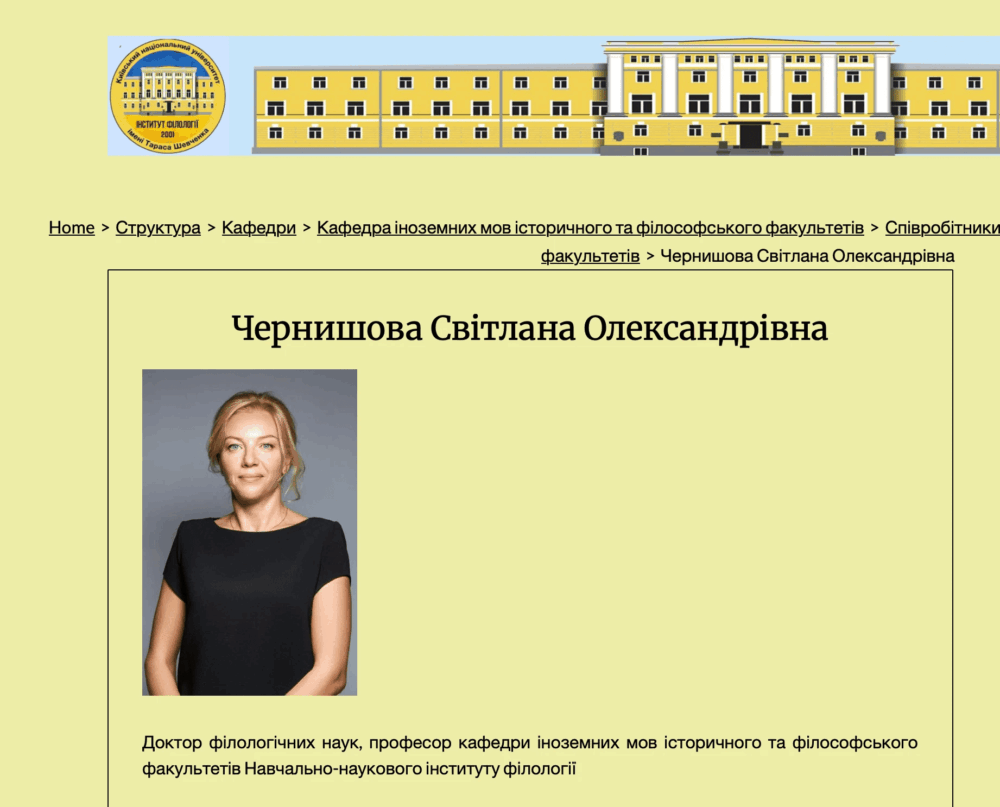
Overall, most of the sources interviewed by Ukrainska Pravda who knew Chernyshov before his rapid career rise under President Volodymyr Zelenskyy emphasize that this figure would hardly have had a chance to reach such heights under any other circumstances.
As early as 2019, influential political sources say, Chernyshov would move “from wall to wall in the President’s Office” and could “wait for hours in the reception areas, not even for the president, Bohdan, or Yermak, but for their deputies.”
According to UP sources, it was Mindich who then recommended Chernyshov to Zelenskyy as a “good guy,” while “Che Guevara’s” wife began actively befriending First Lady Olena Zelenska.
“They are godparents. Everyone knows it. The First Lady baptized the Chernyshovs’ daughter. They constantly spent time together as families,” adds one heavyweight of the Ukrainian political scene.
The next photo appeared in court materials during the hearing on Chernyshov’s preventive measure in July of this year. It is from a family evening dated late 2022.

In July of this year, Ukrainska Pravda reported that the decision to defend Chernyshov and, accordingly, to attack NABU and SAPO was driven precisely by the close personal ties between the head of state and the figure in question.
Sources in political circles told UP that this also explains the fact that a year ago, after information emerged that Chernyshov could become a NABU target, the president not only did not remove him from his position as head of Naftogaz, but instead appointed him Deputy Prime Minister and minister of the specially created Ministry of Unity — specifically for Chernyshov. Notably, Chernyshov’s high-level appointment coincided with his wife’s birthday.
Sources close to the President’s Office told Ukrainska Pravda several months ago, when Chernyshov received his first suspicion of abuse of power and illicit gain, that “Chernyshov set everyone up.” At that time, it seems the President’s Office did not fully understand just how much.
Shortly after the first case, a second one appeared — concerning Chernyshov employing his personal staff in state institutions, including Naftogaz, which he headed.
Almost immediately after that, a third case emerged, related to the houses in Kozyn, built from July 2022 until summer 2025, when Mindich began discussing freezing the construction on recorded tapes.
It can therefore be assumed that all this “major construction” in Kozyn may have been financed by Mindich’s shadow fund, filled with embezzled money from the Ukrainian energy sector during the war.
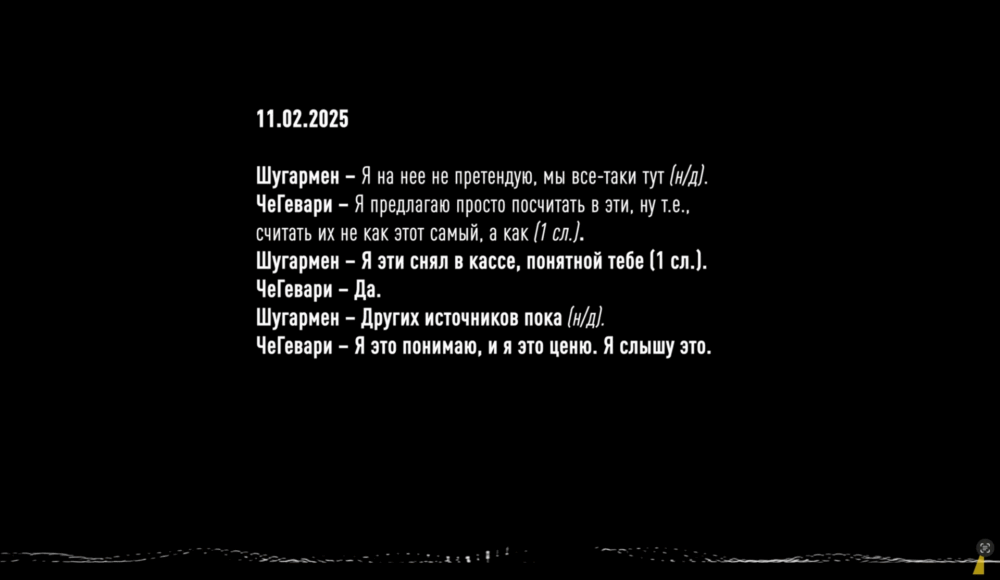
This is further supported by the fact that already published NABU materials indicate that Chernyshov and his wife personally received over a million dollars in the covert offices of the criminal group.
While the situation with Chernyshov’s and Mindich’s houses becomes more or less clear thanks to the content of the recordings, the question of who the largest mansion and its neighboring property were being built for remains open.
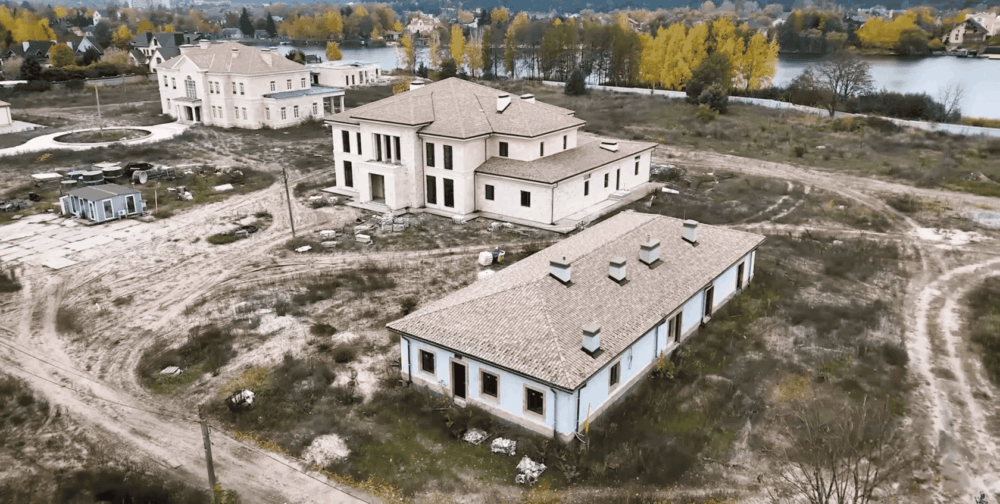
As of now, according to Ukrainska Pravda, there is a high likelihood that Chernyshov will flee or be taken abroad. Both the former deputy prime minister and his wife risk ending up behind bars or negotiating a plea deal. No one has an interest in this except the investigation itself and Chernyshov.
Cashout or blackout?
“Up at Bankova, until the first publication of the Operation ‘Midas’ recordings, they didn’t even try to fight the feeling that those talking about corruption were guilty, not those stealing from the energy sector during the war,” one influential source in law enforcement insists.
“Why couldn’t they just stop stealing?” adds another high-ranking law enforcement official.
The political crisis, triggered by systemic embezzlement of the state budget by Zelenskyy’s closest friends, is reportedly already being discussed within U.S. President Donald Trump’s circle and the American establishment, according to Ukrainska Pravda sources.
Last week, UP reported that the FBI is investigating money laundering involving both businessman Timur Mindich and the same “Sugarman” from the NABU tapes — Mindich’s chief financier, Oleksandr Tsukerman.
As of now, according to Ukrainska Pravda sources in business circles, both suspects are in Israel and have no plans to return to Ukraine to face charges.
“They are the worst students. They don’t learn at all. There’s the history of the country. What can you do, what can’t you do,” one influential former heavyweight of Ukrainian politics complained off the record about the situation.
More than a day after the start of the NABU and SAPO operation, the president has already reacted, announcing sanctions against Timur Mindich and Oleksandr Tsukerman.
However, how these sanctions will affect the suspects if all the criminal group’s “earnings” were unofficial and funneled through proxies remains unclear.
The head of state also emphasized the need for the resignations of Halushchenko and Hrynchuk.
But questions remain open: how did Mindich’s people end up in leadership positions in ministries, state enterprises, and other official institutions, working there for years? Why did a phenomenon like “Mindich” even become possible? How many materials and recordings have NABU and SAPO not yet made public? What was the corrupt influence of the president’s friends on the state? And who was Mindich really — the mastermind or merely the wallet?
Published anti-corruption materials show that the president called Energy Minister Herman Halushchenko following a personal message from Timur Mindich. This suggests that the country may have only seen the first season of the Ukrainian anti-corruption series, aptly titled “Midas.”
It seems the last Ukrainian-produced anti-corruption series that citizens eagerly awaited was called “Servant of the People.” But at some point, the actors, screenwriters, and producers appear to have strayed so far from the script that they could have become the very people they were supposed to fight against.
Tags: corruption in Ukraine Energy Sector Corruption High-Profile Scandal Investigative Analysis mindich case Political Elites War Profiteering Zelenskyy Inner Circle